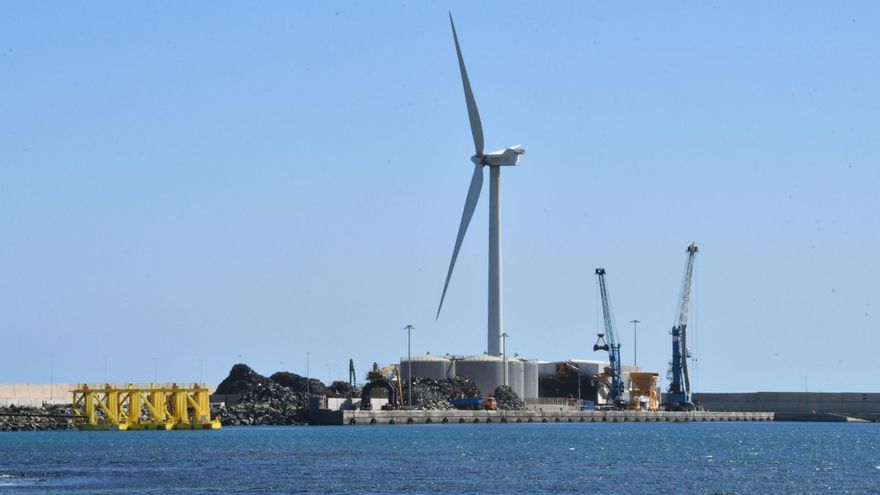
Four biomethane plants will process 120,000 tons of waste from companies in the Archipelago and convert it into green fuel. This is the project that the company ATH Bioenergy is set to launch. These will become the first facilities of this kind in the Canary Islands and will be located in Gran Canaria, Tenerife, Fuerteventura, and Lanzarote. These types of infrastructures are not yet widely spread, not even in the rest of Spain, where there are only nine operational plants, although around 200 are in development.
The construction of the first one in the Canary Islands will begin after the summer, and it is expected to be operational 18 months later, meaning early 2026. This will be located in the duty-free zone of the Port of Arinaga, in Gran Canaria, for which the company has requested the concession of 11,400 cubic meters of land from the Port Authority, which still needs ratification by its Board of Directors. This will not be the first biogas production plant on the island – since the Ecoparks of the North and South have had facilities since 2016 that obtain this material from wastewater sludge and landfill waste – but it will be the first capable of converting that biogas into biomethane, a more refined by-product with properties similar to natural gas.
Three months later, construction will begin on the one in Tenerife, which will occupy 15,678 square meters of a plot in the Granadilla Industrial Estate. This will also be a first for the island of Tenerife, where only small pilot projects had been put into operation. It will be another six months before construction starts on the plants in the eastern islands.
The company behind the operation of these plants in the Canary Islands, ATH Bioenergy, is composed of the fund manager Suma Capital – which recently acquired 80% – and the Swiss Tibanna AG, which has been processing projects in the Canary Islands for several years. Ruperto Unzué, partner at SC Infra of Suma Capital, explains that delays in the start-up of the plants are due to difficulties in obtaining permits to locate the facilities and also in the biomethane market itself, which was not “as mature” a few years ago. He insists that the new European targets are giving a major boost to the sector. “The targets are now very ambitious, 35 trillion cubic meters by 2030.”
The four plants that will start operating in the Canary Islands will be able to process 36,000 tons in the capital islands and 25,000 in Lanzarote and Fuerteventura. Together, they are estimated to create around 160 jobs between operators and technicians, which the company hopes to fill with people from the Archipelago. Their intention is to expand these same plants in the future to increase their production capacity if the project is successful and to explore new opportunities in the Islands.
But what technology are these biogas production plants based on? These types of facilities use biodegradable organic matter, such as food, agricultural, or livestock waste, to produce renewable gas through an anaerobic digestion process. This results in a gas composed of methane and carbon dioxide. Through a purification process, it is converted into biomethane, which can then be used as a generator of electricity or heat, or as fuel for certain types of vehicles.
The waste that will end up at these four plants in the Archipelago will mainly come from hotels and supermarkets. These same companies will then be able to use the produced biogas to replace the non-renewable gas they currently use with renewable gas. Unzué explains that they have already closed agreements, through the signing of letters of interest, with various hotel chains present in the Islands. “This initial contact was well received, and now we are waiting to have the production scheduled to be able to sign the final agreements,” he points out.
[–>
Unzué also explains that the operation of the plants opening in the Canary Islands is zero emissions, as the generated CO2 is recovered, and no other waste is produced because the resulting material from the process is converted into digestate, an organic fertilizer used for agriculture. “In the case of the Canary Islands, we have already been in touch with associations of banana producers so they can benefit from it,” he explains.
Subscribe to continue reading
















